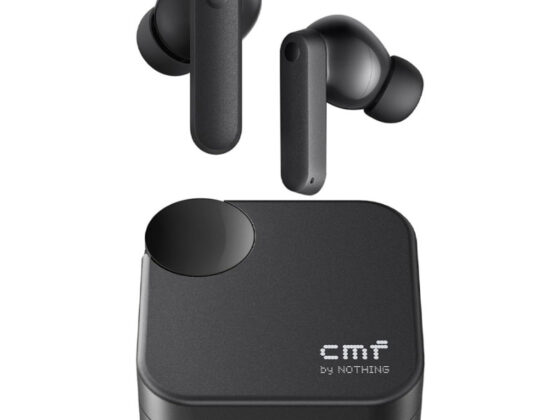What once felt like future tech (printing your own dentures or eyeglasses at home, or even a hospital printing a kidney for a patient who needed one) just triggered one of the most significant Chapter 11 filings in the industrial space.
For decades, it seemed as if 3D printing would become a massive commercial and consumer technology. Amazon once filed patents for trucks that would have 3-D printers onboard so repair technicians could repair any needed part.
Related: Giant healthcare company files Chapter 11 bankruptcy seeking sale
Consumers, many thought, would use home versions of 3D printers for both practical and creative reasons. As the technology became more mainstream, prices would fall, and regular people would be printing everything from novelty coffee mugs to unregistered guns from their homes.
Businesses would take the technology even further, as it would offer a simple way to expand and diversify manufacturing capacity. That's not what happened, and Thierry Rayna, Researcher at the i3 CNRS-CRG laboratory and Professor at École Polytechnique, explained why.
“The so-called ‘disruptive' technology that is 3D printing, now in its thirties, would seem to be coming back into fashion. Yet, despite its revolutionary technical properties and advantages, as well as very optimistic growth projections, the industrial and domestic uses of this technology seem to be progressing much more slowly than expected,” wrote Rayna.
3D-printing remains a viable idea, but it's one that has not truly caught on. Now, one of the largest manufacturers in the space has filed for Chapter 11 bankruptcy.
Desktop Metal, EnvisionTEC US file Chapter 11 bankruptcy
EnvisionTEC US LLC, a manufacturer of industrial 3D printing technologies, has filed for Chapter 11 bankruptcy protection in the Southern District of Texas. The company, which operates as part of the Desktop Metal group and does business as ETEC and Desktop Health, specializes in industrial additive manufacturing solutions, producing 3D printers, materials, and software for various industries including dental, health care, and manufacturing sectors.
The company explained its business on its website.
“ETEC offers a variety of 3D printing systems with the ability to mass-produce polymer parts with the speed and quality needed for demanding end-use applications. ETEC printers deliver parts with exceptional accuracy, superior part properties, fine feature detail, and smooth surface finish at a scale and cost that is competitive with traditional manufacturing techniques like injection molding,” it shared.
The company has been a major player in the health care space.
“Today’s life sciences sector is characterized by feature-rich designs, shorter product life cycles, and increasingly challenging functional requirements. With part costs, build speeds, accuracy, surface finish and material properties rivaling injection molding, ETEC is disrupting traditional manufacturing of medical products,” it posted.
Based in Burlington, Massachusetts, the company reported assets and liabilities each in the range of $100-500 million.
More Bankruptcy:
- Popular pizza dining chain franchisee files Chapter 11 bankruptcy
- Major trucking operation files Chapter 11 bankruptcy
- Las Vegas casino owner files for Chapter 11 bankruptcy
The filing is part of a larger restructuring effort that includes 15 affiliated entities, including parent company Desktop Metal, Inc. and other subsidiaries like ExOne Americas LLC, Adaptive3D Technologies, LLC, and several dental technology businesses.
ETEC/Desktop Metal reported having between 100-199 creditors.
Andrew Hinkelman has been appointed as Chief Restructuring Officer to navigate the bankruptcy process.
Desktop Metals/ETEC Chapter 11 Banrktuptcy at a glance:
- Filing: EnvisionTEC US LLC (part of Desktop Metal) filed Chapter 11 on July 28, 2025.
- Assets/liabilities: $100M–$500M each; 100–199 creditors
- Restructuring plan: Sale to Anzu Partners for certain subsidiaries
- Sector insight: Growth in 3D printing has slowed significantly since 2023
Desktop Metal/ETEC has a Chapter 11 bankrutpcy plan
Desktop Metal, Inc. and its U.S. affiliates, a manufacturing company specializing in production-volume technologies, materials, and applications, has entered into an agreement with an affiliate of Anzu Partners to purchase the Company's ExOne GmbH, EnvisionTEC GmbH, ExOne KK, and AIDRO s.r.l. foreign subsidiaries in a sale, subject to court approval and customary closing conditions.
To implement the sale and protect the business while it markets its remaining assets, Desktop Metal has filed for Chapter 11 of the U.S. Bankruptcy Code in the Southern District of Texas.
Desktop Metals declined to share more about the filing in the short press release about the deal, saying only: “The company values its stakeholders — employees, customers, vendors, and other partners will be communicated with directly on next steps in the coming days.”
Desktop Metals is represented in this matter by Pachulski Stang Ziehl & Jones LLP as legal counsel, FTI Consulting, Inc. as financial advisor, and Piper Sandler & Co as investment banker.
Related: Mark Cuban says AI will end 1 essential job as we know it
Anzu Partners is an investment firm that focuses on clean tech, industrial, and life science technology companies with the potential to transform their industries. Anzu works with entrepreneurs to develop and commercialize technological innovations by providing capital alongside deep expertise in business development, market positioning, global connectivity, and operations.
As of 2024, Anzu Partners managed assets of approximately $1 billion with a team of over 50 professionals in offices across Atlanta, Boston, San Diego, Tampa, and Washington, D.C.
Why are people not using 3D printing?
1. High cost of entry (for quality results)
- Affordable printers often produce low-quality or unreliable prints.
- High-end, professional 3D printers are still expensive ($2,000–$100,000+).
- Materials (filaments/resins) can also be costly and limited in variety.
2. Steep learning curve
- 3D printing requires knowledge of 3D modeling or CAD software.
- Troubleshooting mechanical or software issues can be complex.
- Even pre-made files often need tweaking for a successful print.
3. Slow production times
- Printing even small objects can take hours.
- Post-processing (cleaning, curing, sanding, etc.) adds more time.
- Not suitable for mass production or quick prototyping at consumer level.
4. Quality and reliability issues
- Printers can jam, misalign, or fail mid-print.
- Inconsistent print quality, especially with budget machines.
- Many prints require trial and error to get right.
5. Limited use cases for average consumers
- Most people don’t need to print objects at home regularly.
- Practical everyday uses are limited (replacement parts, hobby items).
- Lack of clear “killer app” for non-hobbyists.













